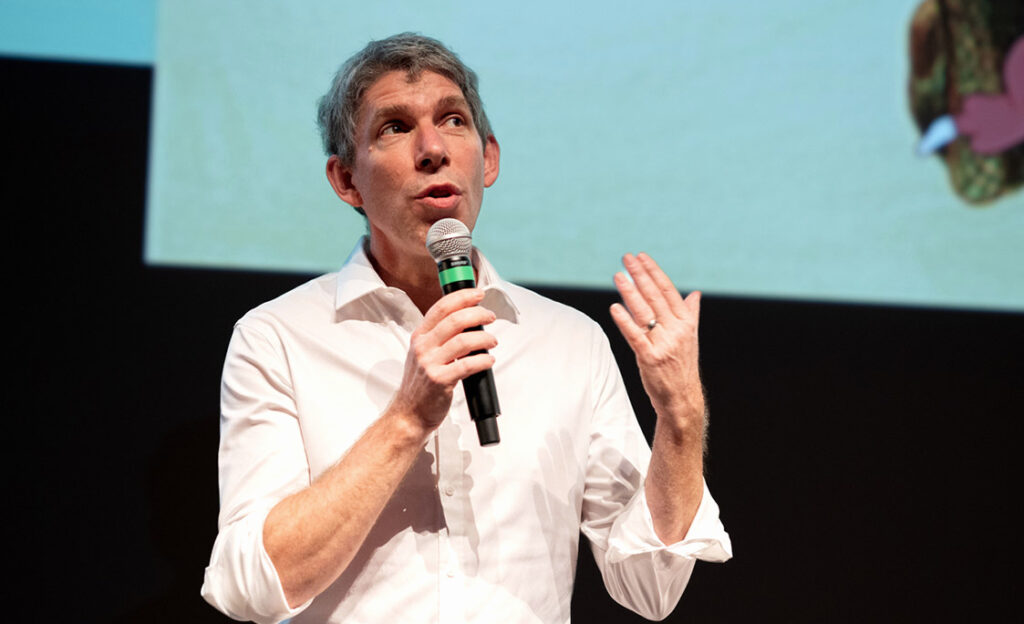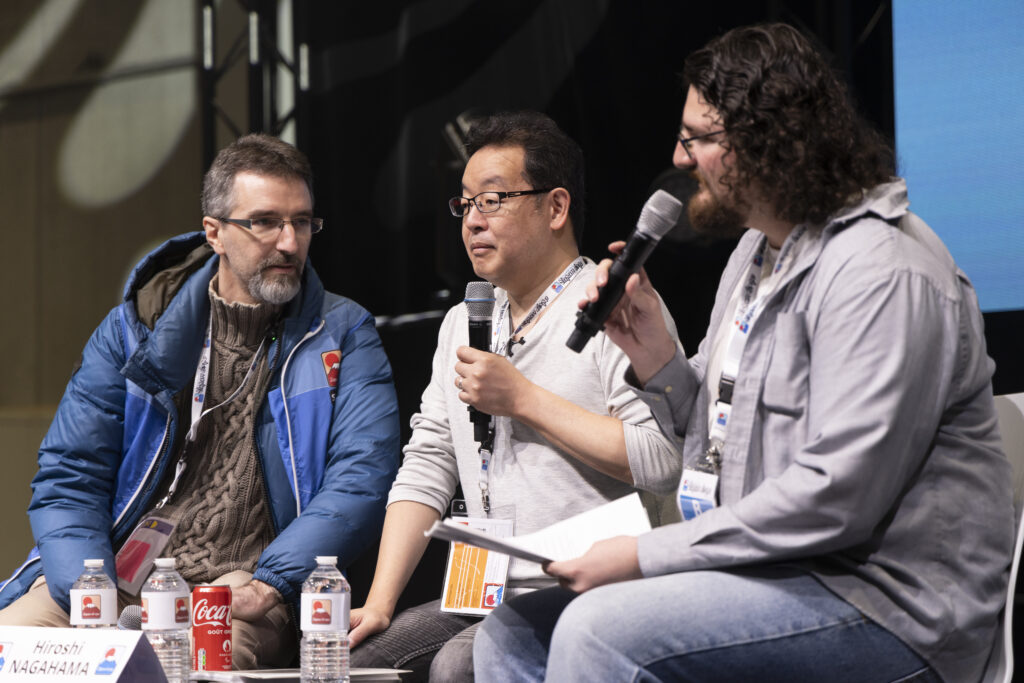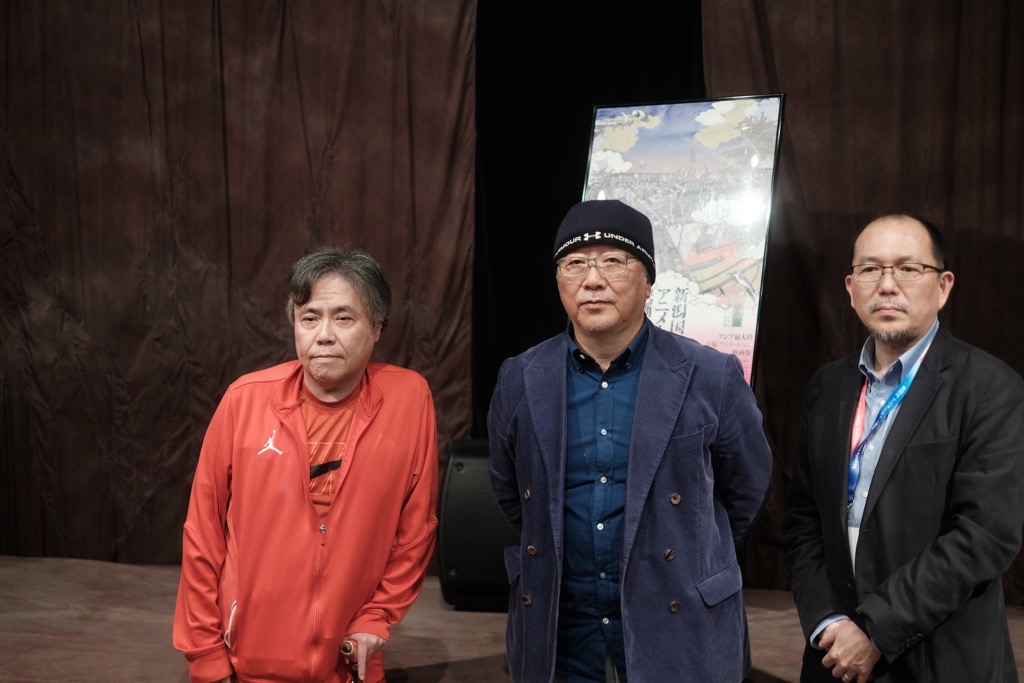What was the first anime you liked? What was the first one you fell in love with? What was the first anime you watched and realized it was anime?
The answer to these questions is important when it comes to answering the question, ‘how do we get people to watch older shows? Because chances are that the first anime you liked, fell in love with, and realized that it was part of a larger cultural art-form was something contemporary to the time and place you first found anime. That is, a lot of 90’s children in the US grew up on Toonami, my father’s generation grew up on Battle of the Planets and Star Blazers. Friends of mine in Latin America grew up on Mazinger Z and Saint Seya. My colleagues in France might remember Goldorak (Grendizer), the first anime to be broadcast in France back when there were only two TV stations. Nearly everyone saw it.
Like our content? Feel free to support us on Ko-Fi!
How you as an individual came in contact with anime does a lot to shape your fandom. If I had been born in the early ’60s in Japan and had a TV to see the first Toei and Mushi Pro TV anime, my fandom would be vastly different than it is now. Obviously, it is silly to tell someone who was there, watching these shows as they aired, to go back and view older anime. But for a lot of us in this fandom, that is not our background.
Part of this issue is that anime is growing at an exponential rate. Every year a couple hundred titles are being released, and it’s impossible to keep up with all of them. New fans are entering into the hobby all the time. Maybe they just want to see the new season of Demon Slayer quicker than they would have to wait for it on Toonami – or perhaps they just want to watch Boruto because they have fond memories growing up with Naruto. These folks are casual fans and may not even self-identify as anime fans. I say casual fans, not as a term of gatekeeping (if anything, this article is about ushering folks through the gate to older shows), but because of the left of interest they show in the larger fandom.
Assuming you’re taking the time to read an article about older anime, you are interested in the greater fandom. You’re comparing season charts, picking what shows you want to watch, live-tweeting – there’s a greater level of participation. And that participation only comes from interest! How that happens is unique to the individual, but 9 times out of 10, it starts with seeing something similar; You go to see Boruto and see Dr. Stone right there, or you start watching Toonami for DBZ and stay for Yu Yu Hakusho. It’s a matter of convenience in modern consumer culture.
Then you have the fans that go looking for older shows. And they have to go looking because it’s simply not convenient. Nor is it hip and trendy – the people who are talking about a show as recent as Evangelion are talking about the show having seen it multiple times. Hashtags and trends for older IPs are set by newer entries in the franchise that necessitate a working knowledge of prior work or are stand-alone. And either way, you split it; it’s new. People want new things.
If we want older anime to be respected and sought after, then we need to treat it like the film industry has. Clubs and archival groups help expose the curious to the origins of their newfound hobby. But there’s also a level of educating that occurs as well. Speaking solely from personal experience, I am much more likely to watch any show (old or new) if it is relevant to a current conversation in the community. Maybe I’m writing about the latest Kamen Rider series and how it harkens back to the original with Takeshi Hongo punching the shit out of Neo-Nazi group Shocker. It has to be interesting and pertinent.
Part of my thoughts on this is also that this issue is nothing new, nor is it unique to anime. Good luck trying to get the kid wide-eyed at Persona 5 to go back and play the first two entries in the series. Or better yet, trying to get them to play Megami Tensei for the NES; hell, even pick up Persona 3. Video games are completely interactive, much more so than anime. Still, it’s difficult to introduce newer fans and hobbyists to the rich history that came before whatever they are interested in. I don’t see many folks in America going back and watching I Love Lucy or Bonanza because they like Breaking Bad despite an apparent and historied culture of American broadcasting that leads from one to the other.
I am complete for and support the idea that we introduce older titles to the larger fandom. But I’m not completely sold that remaking a title is the answer. This is literally the approach that the Pokemon games have taken; release a new title, then find one that stands in need of a remake and release that. The problem is, no one wants to buy the exact same game twice, so they change it. Either it’s quality of life improvements or completely new mechanics to bring things more in line with current standards – either way, something ends up changing. If we learn from that, then I have to ask: “Isn’t that what we’re already doing?” The Shingekijouban films just wrapped up for Evangelion, Gurren Lagann had a two-film compilation… Hell, even the original Gundam series did the exact same thing. I think we forget that this route has been tried before and has been met with varying degrees of success. The aforementioned Yu Yu Hakusho just got two additional episodes animated with ‘modern sensibilities’; was there a revitalization of the series that I was unaware of? I see a lot of people talking about the new stuff, but they were already fans of the original IP and would still be regardless of new content being released.
All of that being said, I think we have yet to learn from it all. The best answer to getting people to love what you love is to let them see you loving it. That’s the reason I started Wave Motion Cannon a few years back and part of why I’m writing for Full Frontal now. I wanted to commit digital ink to internet paper and show anyone who would read why I thought these things were so important. It’s the same reason fan artists, cosplayers, YouTubers, podcasters, and superfans do what they do: they love something and want to bolster and contribute to it in whatever way they can. To me, that’s the answer. Be known for loving what you love, and always encourage others to love it with you because that love changes us and (hopefully) makes us better people. That’s really the goal of a site like Full Frontal; to enjoy otaku culture and share that enjoyment with others.
So watch older shows if you want to, tell your friends and followers about it! Tell them why you love the shows that you do, and better yet, show them! So much of modern consumer culture is dictated by convenience and relevance. It’s what puts the ‘pop’ in pop culture. But we forget that we as consumers have an infinite potential to influence that culture, to be the ‘pop’.
Like our content? Feel free to support us on Ko-Fi!
You might also be interested in
Benoît Chieux, a career in French animation [Carrefour du Cinéma d’Animation 2023]
Aside from the world-famous Annecy Festival, many smaller animation-related events take place in France over the years. One of the most interesting ones is the Carrefour du Cinéma d’Animation (Crossroads of Animation Film), held in Paris in late November. In 2023,...
Directing Mushishi and other spiraling stories – Hiroshi Nagahama and Uki Satake [Panels at Japan Expo Orléans 2023]
Last October, director Hiroshi Nagahama (Mushishi, The Reflection) and voice actress Uki Satake (QT in Space Dandy) were invited to Japan Expo Orléans, an event of a much smaller scale than the main event they organized in Paris. I was offered to host two of his...
Akira stories – Katsuhiro Otomo and Hiroyuki Kitakubo talk at Niigata International Animation Film Festival 2023
Among the many events taking place during the first Niigata International Animation Film Festival was a Katsuhiro Otomo retrospective, held to celebrate the 45th anniversary of Akira and to accompany the release of Otomo’s Complete Works. All of Otomo’s animated...





Old post, new comment.
I occasionally watch Rick Beato’s posts on youtube. He’s a jazz musician and talks about pop music old and new, and how things like autotune and AI have changed music. He’s also talked about the reduced level of fan commitment. In the old days, if he wanted an LP he had to beg his parents for money, or work for it, ride his bike to the story to buy it, ride home, put it on the turntable, listen to it a million times, take it to a friend’s house and listen to it together, etc. You were invested in Led Zeppelin. Sure you could listen to a couple songs on the radio, but most people also bought albums. Now with things like spotify, you can listen all day and never hear the same song twice- everything from Bach to all the AI-written-and-performed songs attributed to a fictional artist. Effortlessly.
Same thing with anime. I used to drive an hour for a monthly university fansub club screening- saw the Ghibli films long before they were commercially-released. Even with Toonami etc, you had to remember to watch when it was broadcast, or be sure to record it.
I watched the original Astro Boy when first broadcast. Now I watch a lot of seasonal shows, as well as visiting older series, and entire genres I missed. I love that I can be super-picky about what I watch, unlike the old days when you’d watch junk just because it was anime.
There’s a lot of quality stuff made now. I think someone who acknowledges that has a better chance making suggestions because their listeners know it’s not a recommendation based solely on nostalgia.